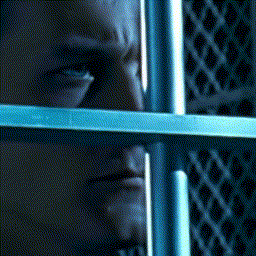| .github | ||
| doc | ||
| facelib | ||
| localization | ||
| mainscripts | ||
| mathlib | ||
| models | ||
| nnlib | ||
| samples | ||
| utils | ||
| .gitignore | ||
| CODEGUIDELINES | ||
| LICENSE | ||
| main.py | ||
| README.md | ||
| requirements-cpu.txt | ||
| requirements-gpu-cuda9-cudnn7.txt | ||
DeepFaceLab is a tool that utilizes deep learning to recognize and swap faces in pictures and videos.
Features:
-
new models
-
new architecture, easy to experiment with models
-
face data embedded to png files
-
automatic GPU manager, chooses best gpu(s) and supports --multi-gpu (only for identical cards). Warning: dont use cards in SLI mode.
-
cpu mode. 8th gen Intel core CPU able to train H64 model in 2 days.
-
new preview window
-
extractor in parallel
-
converter in parallel
-
added --debug option for all stages
-
added MTCNN extractor which produce less jittered aligned face than DLIBCNN, but can produce more false faces. Comparison dlib (at left) vs mtcnn on hard case:
 MTCNN produces less jitter.
MTCNN produces less jitter. -
added Manual extractor. You can fix missed faces manually or do full manual extract:


-
standalone zero dependencies ready to work prebuilt binary for all windows versions, see below
Warning: Facesets of FaceSwap or FakeApp are not compatible with this repo. You should to run extract again.
Model types:
- H64 (2GB+) - half face with 64 resolution. It is as original FakeApp or FaceSwap, but with new TensorFlow 1.8 DSSIM Loss func and separated mask decoder + better ConverterMasked. for 2GB and 3GB VRAM model works in reduced mode.
H64 Robert Downey Jr.:
- H128 (3GB+) - as H64, but in 128 resolution. Better face details. for 3GB and 4GB VRAM model works in reduced mode.
H128 Cage:
H128 asian face on blurry target:
- DF (5GB+) - @dfaker model. As H128, but fullface model. Strongly recommended not to mix various light conditions in src faces.
- LIAEF128 (5GB+) - Less agressive Improved Autoencoder Fullface 128 model. Result of combining DF, IAE, + experiments. Model tries to morph src face to dst, while keeping facial features of src face, but less agressive morphing. Model has problems with closed eyes recognizing.
LIAEF128 Cage:
LIAEF128 Cage video:
- SAE (2GB+) - Styled AutoEncoder. It is like LIAEF but with new face style loss. SAE more like face morpher/stylizer rather than direct swapper. Available options on start: resolution, ae-dims, half/full face.
SAE model Cage-Trump video: https://www.youtube.com/watch?v=2R_aqHBClUQ
Tips and tricks:
unfortunately deepfaking is time/eletricpower consuming topic and has a lot of nuances.
Every model is good for specific scenes and faces. H64 - good for straight faces as a demo and for low vram. H128 - good for straight faces, gives highest resolution and details possible in 2019. Absolute best for asian faces, because they are flat, similar and evenly lighted with clear skin. DF - good for side faces, but results in a lower resolution and details. Covers more area of cheeks. Keeps face unmorphed. Good for similar face shapes. LIAE - can partially fix dissimilar face shapes, but results in a less recognizable face. SAE - no matter how similar faces, src face will be morphed onto dst face, which can make face absolutely unrecognizable. Model can collapse on some scenes. Easy to overlay final face because dst background is also predicted.
Quality of src faceset significantly affects the final face.
Narrow src face is better fakeable than wide. This is why Cage is so popular in deepfakes.
Sort tool:
blur places most blurred faces at end of folder
hist groups images by similar content
hist-dissim places most similar to each other images to end.
hist-blur sort by blur in groups of similar content
brightness
hue
black Places images which contains black area at end of folder. Useful to get rid of src faces which cutted by screen.
final sorts by yaw, blur, and hist, and leaves best 1500-1700 images.
Best practice for gather src faceset from tens of thousands images:
black-> then delete faces cutted by black area at end of folderblur-> then delete blurred faces at end of folderhist-> then delete groups of similar unwanted faces and leave only target facefinal-> then delete faces occluded by obstructions
Best practice for dst faces:
- delete first unsorted aligned groups of images what you can to delete. Dont touch target face mixed with others.
hist-> then delete groups of similar and leave only target face
Ready to work facesets:
Nicolas Cage 4 facesets (1 mix + 3 different), Steve Jobs, Putin
download from here: https://mega.nz/#F!y1ERHDaL!PPwg01PQZk0FhWLVo5_MaQ
Build info
dlib==19.10.0 from pip compiled without CUDA. Therefore you have to compile DLIB manually, orelse use MT extractor only.
Command line example for windows: python setup.py install -G "Visual Studio 14 2015" --yes DLIB_USE_CUDA
CPU only mode
CPU mode enabled by arg --cpu-only for all stages. Follow requirements-cpu.txt to install req packages. Do not use DLIB extractor in CPU mode, its too slow. Only H64 model reasonable to train on home CPU.
Mac/linux/docker script support.
This repo supports only windows build of scripts. If you want to support mac/linux/docker - create such fork, it will be referenced here.
Prebuilt windows app:
Windows 7,8,8.1,10 zero dependency (just install/update your GeForce Drivers) prebuilt DeepFaceLab (include GPU and CPU versions) can be downloaded from
- torrent https://rutracker.org/forum/viewtopic.php?p=75318742 (magnet link inside).
- https://mega.nz/#F!b9MzCK4B!zEAG9txu7uaRUjXz9PtBqg
Video tutorial: https://www.youtube.com/watch?v=K98nTNjXkq8
**Windows 10 memory problem:
Windows 10 consumes % of VRAM even if card unused for video output.
Problem of the year:
algorithm of overlaying neural face onto video face located in ConverterMasked.py. Can someone implement adaptive histogram matching to prevent glares when a dark eyes face merges onto a light eyes face ?











